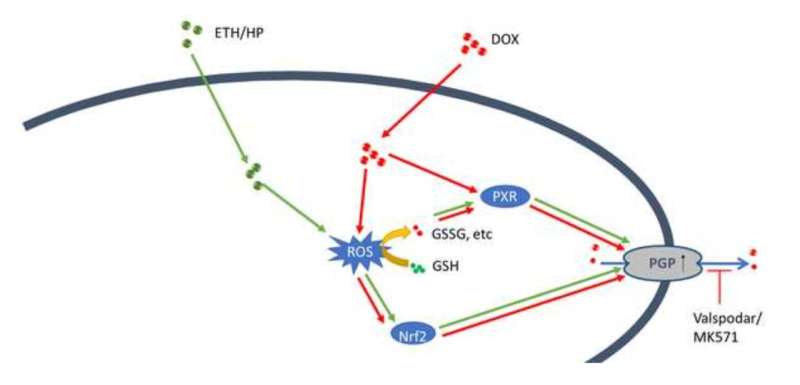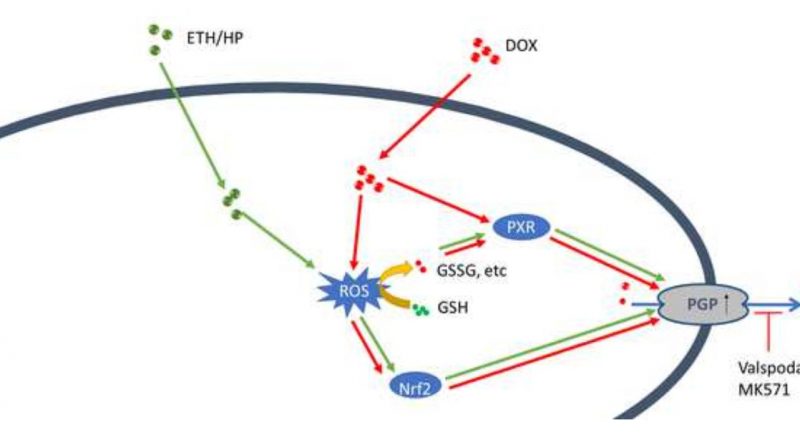Reasons for occurrence of multi-drug resistance during tumor therapy

Researchers from the Suzhou Institute of Biomedical Engineering and Technology (SIBEBT) of the Chinese Academy of Sciences (CAS) have revealed the reasons for the inevitable occurrence of multidrug resistance during tumor therapy, after the long engagement of a tumor multidrug resistance mechanisms investigation.
Chemotherapy is one of the main ways for cancer treatment, but it is often hindered by the occurrence of drug resistance, which would eventually develop into multidrug-resistance and make most drugs ineffective.
Researchers have revealed many mechanisms of drug resistance, the most well-known of which is the induction of adenosine triphosphate (ATP)-binding cassette (ABC) transporters by chemotherapeutic drugs. These transporters are highly expressed in cancer cells and pumped out chemotherapeutics to make the treatment ineffective.
Previous studies have shown that non-substrate nanoparticles could induce multidrug resistance by inducing oxidative damage, suggesting that multidrug resistance could be induced by not only the substrates, but also the oxidative damages.
To confirm the conclusion, Yin Jian and his team at SIBEBT investigated the interaction of three chemical agents (ethanol, hydrogen peroxide, and doxorubicin) with ABC transporters using a lung cancer cell line (A549) as a model.
Among the three chemicals, doxorubicin is the substrate of ABC transporter and chemotherapeutic drugs, while ethanol and hydrogen peroxide are small-molecule compounds, which have no relationship with the function of ABC transporter.
“When the three substances enter the cells, they can cause significant oxidative stress inside cells,” said Yin.
The elevated oxidative stress induced the expression of transporters, and the elevated transporters reduce intracellular oxidative stress by effluxing oxidized glutathione. In this process, pregnane X receptor played an important regulatory role.
Their results suggested that non-substrate chemicals could also induce ABC transporter expressions similar to chemotherapeutic agents after inducing oxidative damage. This phenomenon could be regarded as a non-specific feedback of tumor cells/ABC transporters to external stimuli.
The conclusions validated the relationship between multidrug resistance mechanisms and oxidative stress. This would help to design advanced strategies on how to enhance this mechanism to more effectively combat ABC transporter-mediated multidrug resistance.
“Considering that peroxidative damage is the main source of the toxicity of current environmental pollutants, long-term exposure to environmental pollutants could not only induce direct toxicity, but also further threaten human health by inducing multi-drug resistance,” said Yin Huancai, another researcher from the team.
Source: Read Full Article



